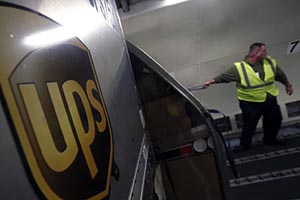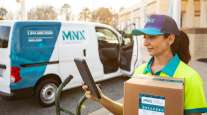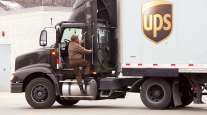UPS CEO Sees Greater Commitment From Obama Administration on TPP Deal

The top executive at UPS Inc. said Oct. 27 he is seeing a greater commitment from the Obama administration on completing the Trans Pacific Partnership deal despite negative election campaign rhetoric about free trade agreements.
"I'm still optimistic there's a chance to get this for a vote in the lame-duck session," David Abney, CEO of UPS, told Reuters, referring to the U.S. Congress vote on the agreement. "The current president has made it clear this is a high priority, and his people are starting to contact people across the aisle to make sure we give this a fair hearing."
"If anything, I'm seeing a greater commitment from the administration than before," he added.
RELATED: UPS ordering 14 Boeing 747-8 airplanes in $5.3 billion deal
Abney highlighted a section in the TPP deal on small businesses, which will enable smaller U.S. firms to gain access to new markets.
UPS ranks No. 1 on the Transport Topics Top 100 list of the largest U.S. and Canadian for-hire carriers.
Both major party nominees in the presidential race — Democrat Hillary Clinton and Republican Donald Trump — have criticized TPP, a 12-country pan-Pacific trade deal negotiated by the Obama administration.
Trump also has railed against the North American Free Trade Agreement with Canada and Mexico as a U.S. job killer, saying that if elected, he would be prepared to scrap it if he could not negotiate much better terms for the United States.
RELATED: UPS profits rise 3.6% to $1.27 billion in third quarter
"You focus on the candidates that are going to be in place, but we're going to focus on the person who's going to be in charge through the end of the year," said Abney, head of the world's largest package delivery company.
He spoke to Reuters after UPS posted third-quarter results that met Wall Street expectations.
Abney also said UPS has added capacity for this year's U.S. peak holiday season to handle soaring ecommerce package volumes.
The company has 15 new or expanded hubs, 13 temporary hub facilities —which it calls "pop-up hubs" — and more than 20 leased buildings.
UPS had a solid peak season performance in 2015 after two years of struggle to balance capacity and demand.
"We've increased capacity, the pipe is wider," Abney said.
UPS is working closely with major customers to anticipate package orders and has added more weekend shifts, especially after Thanksgiving, to handle the extra business.
"Now, there's going to be some surprises, but I'm confident we have as thorough and up-to-date information as our customers have about how their customers are going to ship," Abney said.




